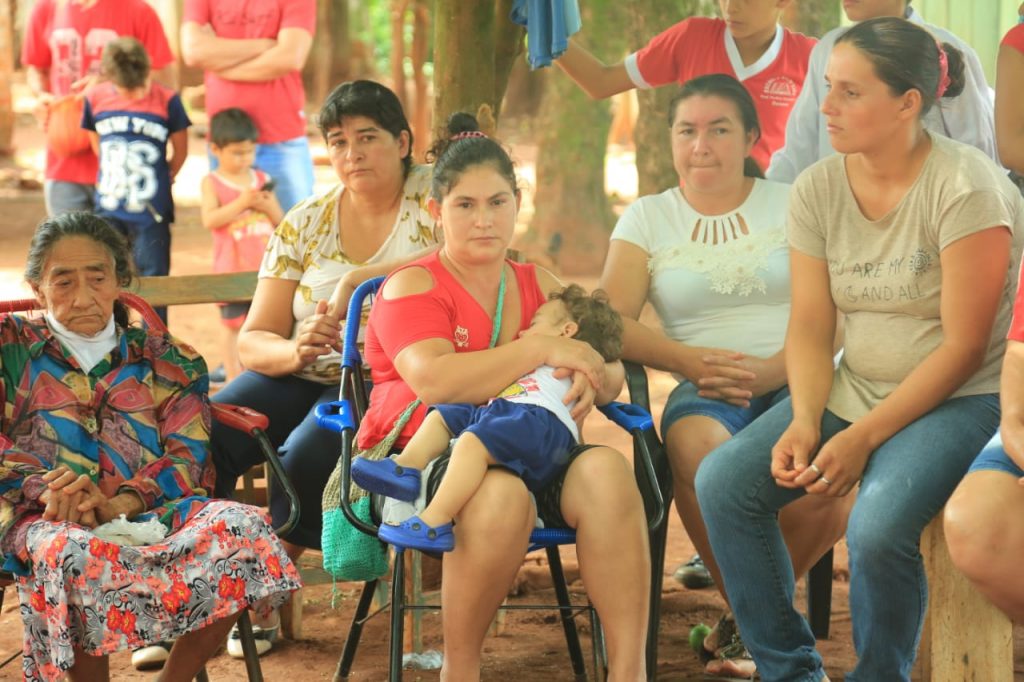GPSA projects
Improving Transparency and Performance of the Conditional Cash Transfer Program
Project: Tekopora Beneficiaries Empowered to Ensure Social Accountability Project
Country: Paraguay
Sector: Social Protection
Executing Agency:Centro de Información y Recursos para el Desarrollo (CIRD)
Grant Amount: $600,000
Closing Date: October 2019


Frame and Challenge
Paraguay, a lower-middle income country, has seen its economy expand over the past decade, buoyed by high commodity prices. Strong economic growth rates have contributed to a reduction in poverty rates from 49.7% to 32.4% from 2002 to 2011. Despite significant progress in improving development outcomes, extreme poverty rates have increased during the second half of the decade, moving from 16.5% in 2007 to 19.4% in 2010. Inequality rates have expanded during the same period, making Paraguay one of the most unequal nations in Latin America.
Against this background, the government has taken measures to lift people from extreme poverty and spread the benefits of economic growth across the population. One of the major policies in this area is the use of conditional cash transfers (CCTs). Tekoporã, the country’s largest CCT program, has been launched in 2005 with the objective of improving health, education, and nutritional outcomes of extreme poor households by offsetting costs with monetary transfers and introducing interventions to raise awareness on these areas. The program targets around 90,000 households and plans to expand coverage to 200,000 households over the next four years. However, the program suffers from weaknesses that undermine its effectiveness. These include: poor coordination between implementing agencies and local supervisors, weak mechanisms for identifying beneficiaries, unreliable data an information on beneficiaries, and documenting the results attained, among others.
Solution
CIRD, an organization with a track record in promoting social accountability, has been awarded a GPSA grant to enhance transparency and accountability of the Tekoporã program by developing a citizen-government partnership and strengthening feedback loops. More specifically, this will be achieved by CIRD, who will be working with a coalition of CSOs, through the implementation of three components that are geared towards:
- training selected beneficiaries to enhance information and oversight as well as improve their capacity to work with government authorities;
- implementing community score cards and information monitoring systems to collect critical information, disseminate it, and use it to improve the quality of CCTs program; and
- deepening understanding of CCTs monitoring tools to improve collection of information and transferring knowledge generated by project.
Outcomes
The GPSA grant has helped CIRD attain the following results thus far in the Project:
- Tekoporã families, service providers, and local authorities in each district have jointly elaborated improvement plans (community report cards) for the Tekoporã Program and its health and education services.
- The 1st round of community report cards has been implemented. Results were disseminated and analyzed by Tekoporã families, authorities, and service providers at the central and local levels.
- Ministries and directorates involved in Tekoporã service delivery now coordinate in an intersectoral round table. The government also adopted the Project’s goals are a part of the citizen engagement commitments in its Open Government Action Plan, 2015-2018.
- The implementation of an online monitoring dashboard to strengthen coordination of activities and improve Tekoporã and its health and education services.
Lessons Learned
The design of this grant benefits from the lessons learned by CIRD and its various partners generated in previous projects that focused on fostering public debate of government policies and measuring government performance and institutional capacity at the municipal level. Additional lessons to be gleaned from the project thus far include:
- The project implementers have deemed necessary the development of a communications strategy involving the of opinion leaders and the organization of a series of workshops and spaces for public debate regarding the themes of the project.
- Because the first year of the project coincided with municipal elections, it was important to acknowledge the difficulties in contacting authorities in the pre and post-election public offices so as to continue Project implementation. Development of field activities during political change should be ensured by maintaining contacts among both pre and post-election officials in other GPSA projects.
- The Project has found success in working with women who are identified as household and community leaders, and that outfitting them with the tools for social auditing may encourage more women to practice and use social accountability tools across the board.
Learn more
To know more about this and other projects, check out the following links:
Website: Social Auditing Project
Another CCT Project: Guarding the Integrity of the Conditional Cash Transfer Program for the Philippines
